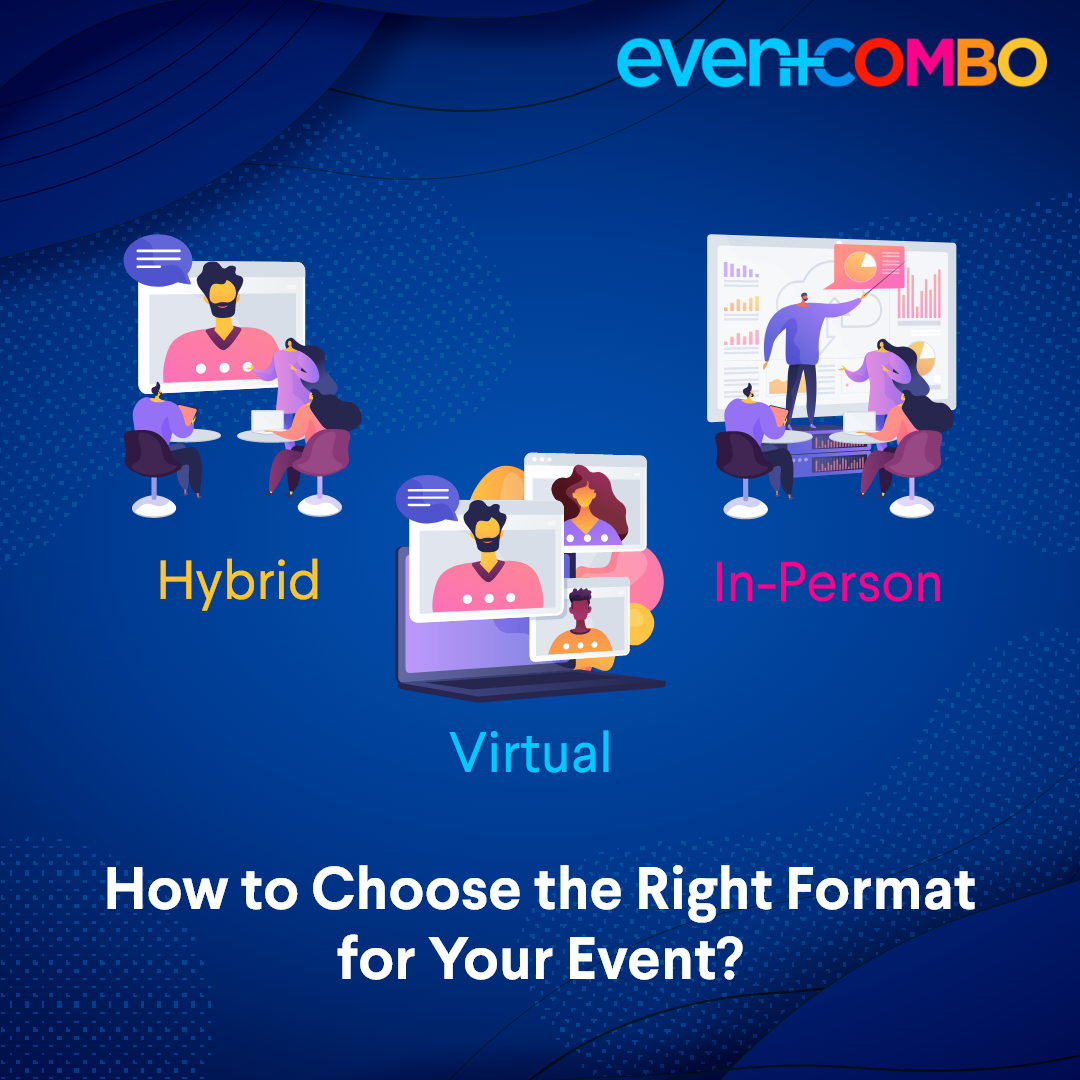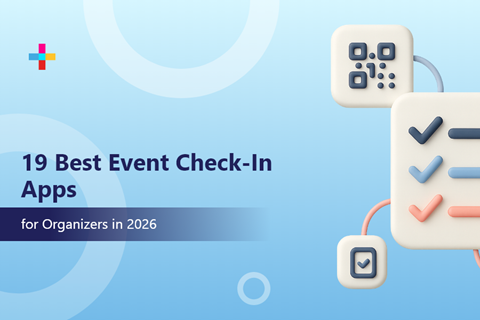

Have you ever given a thought to classifying your events? Most of the time an event is classified based on its purpose. On the other hand, it can also be classified based on the kind of audience the event is catering to. Events are not just social gatherings; in fact, every event has an aim to serve and a goal to achieve. So, the next question arises how does one choose the right event format?
Over the last two years, virtual and hybrid events have become fairly frequent since they are convenient and very well eliminate the issues of geographical barrier, travel restrictions, etc. According to Markelectic, nearly 47% of event planners have stated that hybrid events have proven to be extremely effective when it comes to connecting geographically dispersed audiences.
Hybrid, Virtual, or In-Person - choose for yourself
When event organizers are planning an event, the most important goal is to bring people together for a common purpose. Now, an event can have various purposes such as education, training, upskilling, certification, or just inviting attendees to be a part of a celebration.
Today we are witnessing three predominant event formats
In-person – all attendees are physically present at the event venue
Virtual – all attendees join online
Hybrid – some people mark their attendance at the event venue while others join online
Now, how does one determine which format is the best for their event? Let us take a look at the benefits of each one.
Hybrid Events
In simple terms, hybrid events are a blend of in-person and virtual events. Engagement is an important aspect of the hybrid event. At a time when events have swiftly transitioned from in-person to virtual, the blend of the two evolving as hybrid has brought with it great value in terms of reach, flexibility, and affordability. If planned well, hybrid events can work wonders for your grand vision of increased engagement and wider reach. Therefore, an expert's advice on hybrid events is always encouraged to explore to drive greater prospects. These events can be indeed unique, inspiring and educating, but can also lack engagement if not planned properly.
A hybrid event
A hybrid event is not
Hybrid events can include
Virtual Events
An event that aims to bring people together digitally through a medium (an event tech platform) can be described as a virtual event. It can vary from a small group meet to large gatherings. Some important attributes of virtual events include, fireside chat, high-quality real-time video streaming, custom rooms, virtual booths, etc.
A virtual event
A virtual event is not
Virtual events can include
In-Person Events
There are several benefits of virtual and hybrid events, but nothing can replace the joy of meeting people in person and networking in a room full of people. In-person events offer a far greater level of engagement in comparison to the other two formats.
An in-person event
An in-person event is not
In-person events can include
Some important questions to ask when choosing a format
Every event is distinct and so are its requirements and, hence, there are several considerations to be kept in mind.
1. What is the aim of your event?
Clearly defining the aim of your event is important as it directly affects the overall structure and event format. In case an event has to be organized for educational purpose only then choosing a purely virtual format is advisable. A purely virtual event format offers many perks such as choosing a time slot as per convenience. On the other hand, if an event aims to offer entertainment and rewards then hosting an in-person event is a great option.
2. What type of content will you craft?
If an event is only inviting one or two speakers for sessions, the best format to opt for in this case is virtual, as this option will save time, cut down travel expenses, and eliminate too much effort that would have otherwise gone into planning a physical event.
In case, an event is organized for networking purposes and aims to offer a higher level of engagement, a hybrid or purely in-person event format is the best.
3. What geographical locations does your audience belong to?
If an event is organized for a local audience, who belong to a common city or state, hosting an in-person event is a good option as it is not at all difficult to get everyone together. If the target audience is geographically dispersed, a virtual or hybrid event should be the preferred choice.
4. What is the overall budget?
Budget is one of the most important aspects of any event. How much an event organizer is willing to spend, and what’s the return on investment? These are important questions to ask. Fixing a budget determines everything else like the kind of venue to choose (large, medium, or small), streaming technology to opt for, and software solutions to select to ensure a seamless virtual or hybrid experience. Once the budget is fixed, it is easier to determine how exactly to shape your event and what format to choose.
Are you also keen to know which event technologies to opt for? Take a look at the most popular event tech trends to look out for in 2022 that can help you increase the impact and ROI of your event.

Professional certifications for event planners do more than provide a solid foundation in the field; they offer valuable exposure to the dynamic world of event planning and insights from prominent industry experts.

Choosing the right event management platform is vital for event professionals navigating the growing demand for in person , virtual, and hybrid events. Modern planners need solutions that offer robust features,...

Attendees don't notice good check-in. They only notice bad check-in. And planners know check-in is the first moment where their behind-the-scenes work gets exposed.